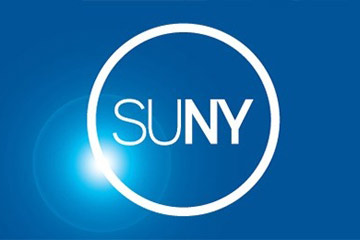Bulletin News

03/01/2021
A new plan to encourage greater diversity, equity and inclusion across SUNY’s 64-campus system uses SUNY Cortland’s three-year-old Multicultural Male Initiative (MMI) as a potential model for other campuses.
The SUNY Diversity, Equity, and Inclusion Phase One Action Plan, presented by SUNY Chancellor James Malatras to the Board of Trustees on Thursday, Feb. 25, includes the Cortland initiative in one of the 25 action points recommended to continue to close equity gaps across the system. Systemwide, students from underrepresented backgrounds graduate at a lower rate than white students. This is especially true of male students.
Cortland’s Multicultural Male Initiative seeks to improve access, retention and graduation rates of men of color — African American, Asian, Hispanic/Latinx, Native American, Native Hawaiian, and Alaska Native — by providing academic support, professional development and mentoring. It was one of three existing SUNY programs offered as models by the plan.
The SUNY official also credited SUNY Empire State College’s Black Male Initiative and Upstate Medical University’s Mentors in Healthcare program.
“MMI has been highlighted as a SUNY model program dedicated to the social-emotional and academic development of students of color,” said Lorraine Lopez-Janove, chief diversity and inclusion officer in SUNY Cortland’s Institutional, Equity and Inclusion Office.
"The program aims to support the college and career success of men of color by utilizing a holistic approach to promote brotherhood and community through cultural awareness and identity development."
“It feels good to know that SUNY Cortland has a program like Multicultural Male Initiative to provide support for our men of color students,” said Lima Maria Stafford ’12, assistant director of SUNY Cortland’s Multicultural Life and Diversity Office.
“I love the academic, mentoring and professional development component of the MMI program,” she said. “It’s another way to provide resources to our students, especially those who may not have had the best support coming from high school.”
For the past two years, MMI has held a Men of Color Student Leadership Summit. The third annual summit — on the theme of “Self-Worth, Self-Value, Self-Care” — took place on March 6 via Webex. The event was free and geared to college and university participants in the upstate New York region. Twenty-six universities, high schools or church congregations were represented.
"For SUNY Cortland to have initiatives such as MMI is groundbreaking," said Maxwell Smith, one summit speaker who is a student and the president of Men of Value and Excellence (MOVE). "It allows students to feel more like at home, more comfortable. It allows you to keep on top of your studies while giving you a social presence. It’s excellent all around."
Stafford credits the previous chief diversity and inclusion officer (CDIO), James Felton III, and recent graduate Chris Venant ’19 for developing the MMI program for SUNY Cortland.
The need for such programs has grown as the students moving through the SUNY system have become more diverse. According to SUNY’s recently released plan document, while at enrollment rates for Black and Hispanic/Latinx students grew significantly, there remains a significant achievement gap between those students and white students. For example, a 2019 report from the National Center for Education Statistics (NCES), found only 40% of Black students graduated from their first institution within six years, the lowest rate of all racial and ethnic groups except Native American students, at only 39%. Slightly more than half of Hispanic/Latinx students — 54% — graduated within six years of enrollment. These rates stand in stark contrast to the six-year graduation rate of 64% for white students.
SUNY has long been a standard-bearer in promoting diversity, equity, and inclusion. During his 2021 State of the University System address, Chancellor Jim Malatras noted that SUNY’s commitment to diversity and inclusion was foundational to its original mission.
“SUNY’s founders were acutely aware of the pervasive discrimination that existed at the time of SUNY’s creation and seized the moment to lead by building an institution not only committed to academic excellence but accessible to all New Yorkers regardless of race, ethnicity, gender, religion or class,” Malatras said.
“In the 73 years since its founding, SUNY has strived to stay true to that mission by meeting the moment of the times. SUNY’s challenge today is to continue to lead in this effort, inspired by the courage and progressiveness of its founders, to provide New Yorkers with a diverse, equitable and inclusive system of public higher education.”

